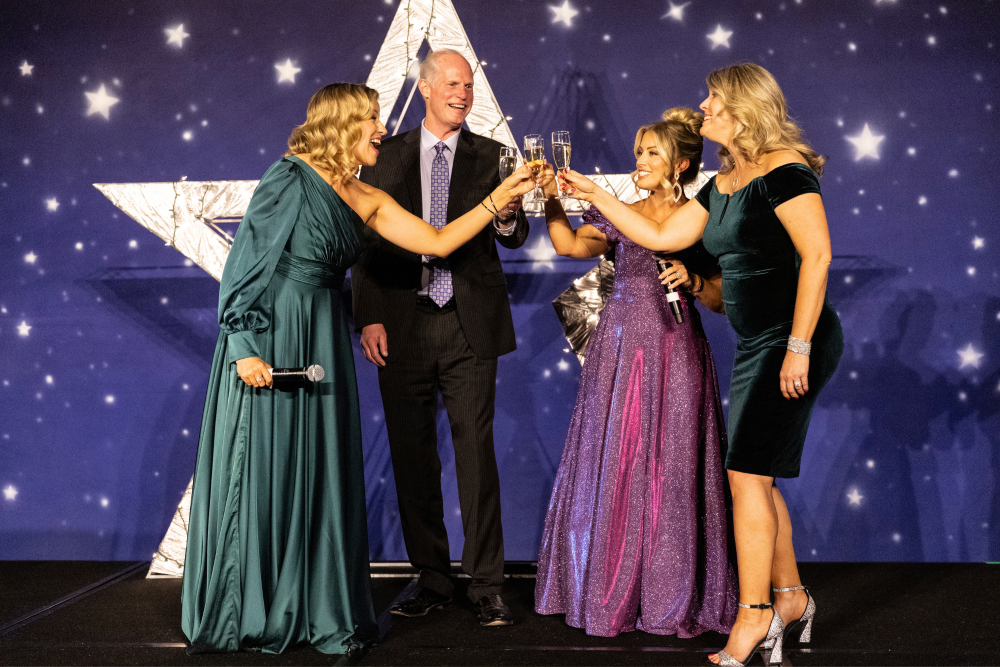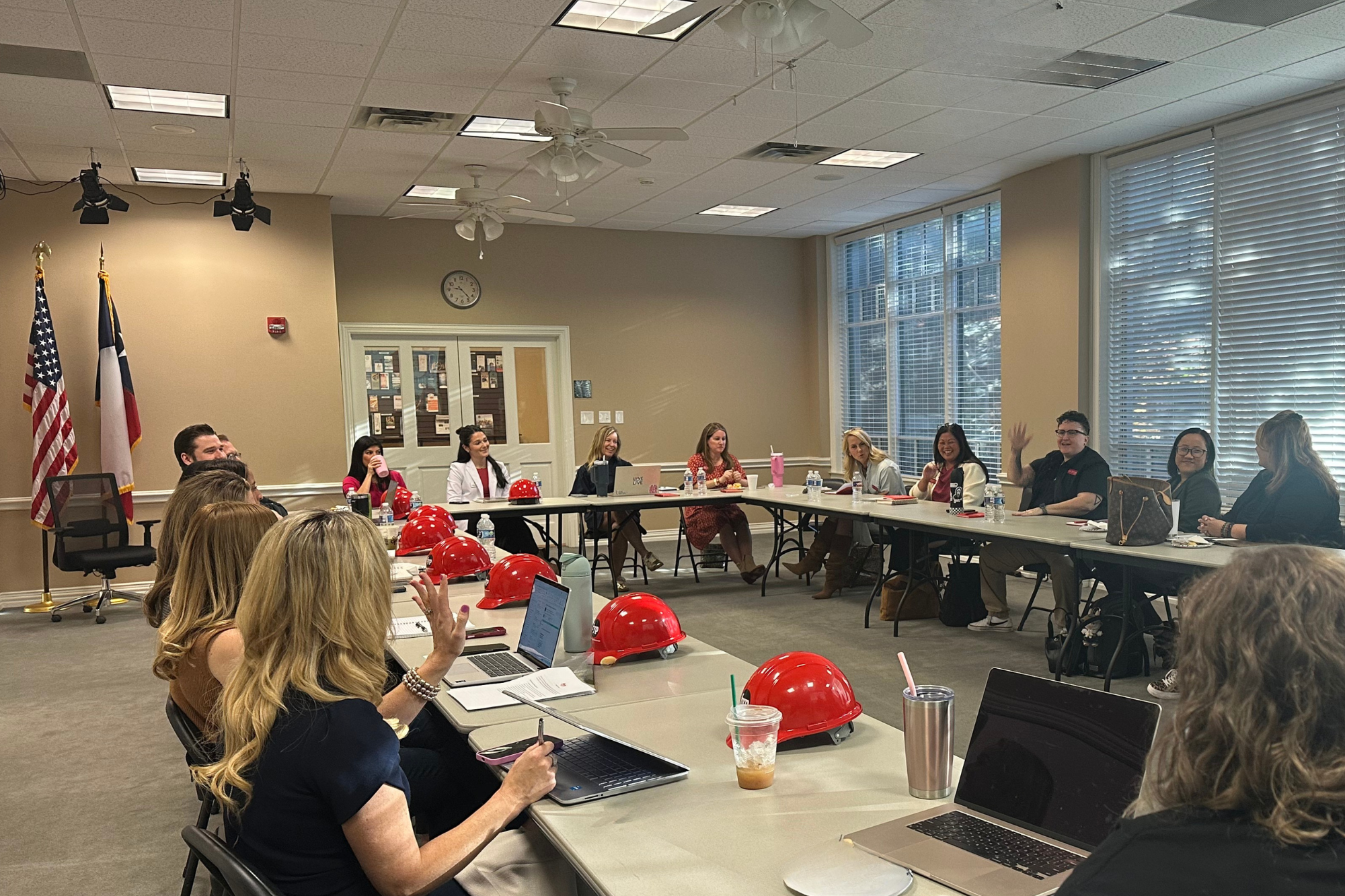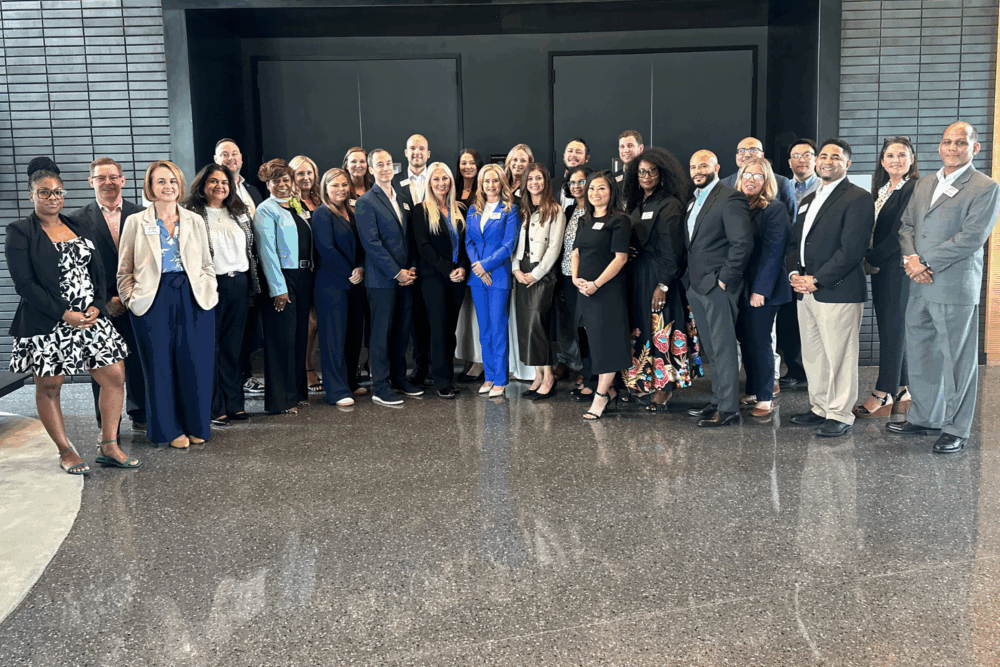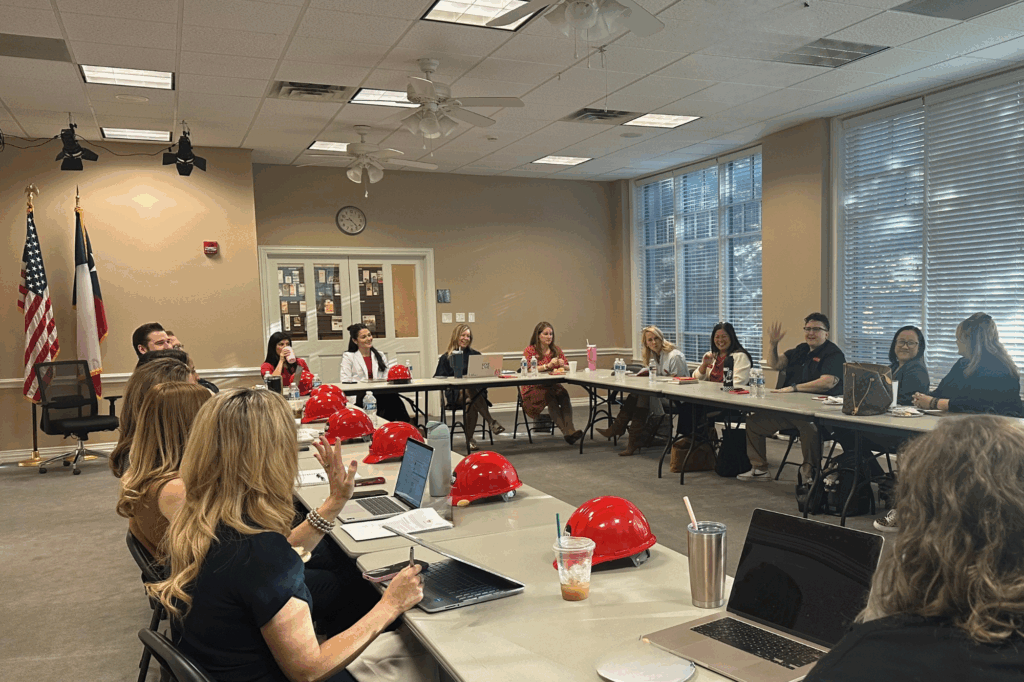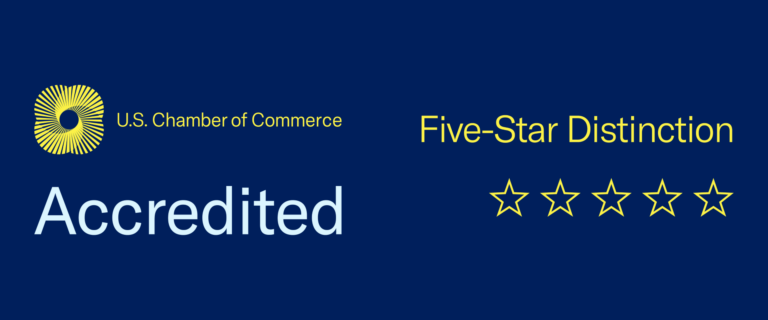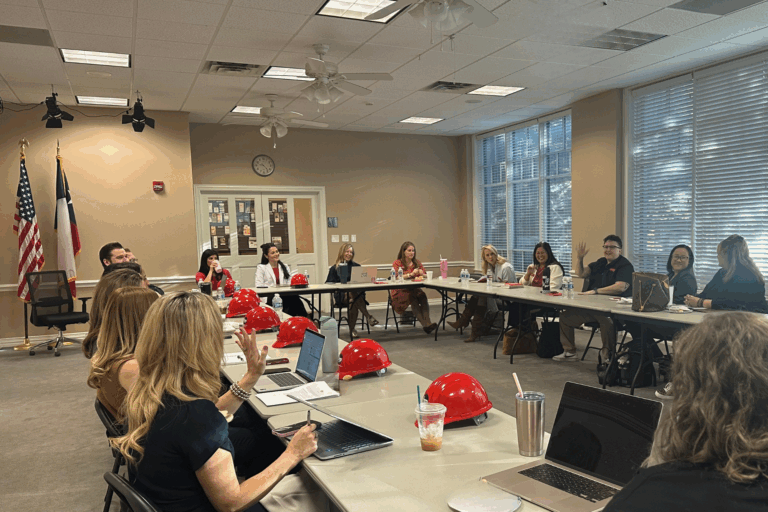Audrey Henvey
ahenvey@starlocalmedia.com
This article appeared online on June 15, 2021, in the Frisco Enterprise and in the June 20, 2021 print edition.
Find the original article here.
Frisco Reflects On Past And Future During ‘State Of The City’ Event
Mayor Jeff Cheney remembers March 11, 2020, as a day that will live in infamy, but three days before that, the city of Frisco had been riding high.
Just before the reality of a global pandemic had begun to take shape, a survey had identified Frisco as the most recession-resistant city in the country.
“Later that week I was asked about that, and I said ‘Well, I guess we’re going to find out,’” Cheney said Tuesday. “And we did, and Frisco has been very recession-proof throughout all of this.”

The Frisco Chamber of Commerce hosted a State of the City event Tuesday. Chamber president and CEO Tony Felker, left, led Visit Frisco Executive Director Marla Roe, Ron Patterson, Frisco Economic Development Corporation president and Mayor Jeff Cheney through a panel discussion about the city’s past and future.
Audrey Henvey/staff photo
The city is seeing elevated permit numbers for single-family developments, a commercial base that continues to increase and unemployment numbers that fall below statewide and regional averages, Cheney said.
Cheney shared those factors Tuesday at a State of the City event hosted by the Frisco Chamber of Commerce, an event that had been held virtually the previous year in the midst of a pandemic.
“It’s hard to declare any type of victory over COVID, but I would say I think we fared much better than most communities,” Cheney said Tuesday, “and it’s because of the partnerships that we have.”
During a panel discussion, Ron Patterson, Frisco Economic Development Corporation president, said the area’s low unemployment numbers are good from the employee perspective.
“But there is that delta, there is that issue where we’ve got to get some of those jobs filled, and unfortunately there are some policy issues at the federal level that we’ve got to work through to be able to deal with that,” Patterson said. “I will tell you that it’s interesting that primarily it’s in the hospitality industry and entertainment where the biggest shortages are.”
He added that there is a good pipeline from entities like Collin College and UNT feeding into local corporations.
Visit Frisco Executive Director Marla Roe said tourism had been impacted more than any other industry in the past year.
“We spent a lot of time rebuilding business, helping our hotels keep their business and just moving to new dates,” she said.
She added that they had been able to bring in events that weren’t able to take place in other states.
“We’ve booked more business in April and May this year than 2019, which we think is a huge milestone,” Roe said.
Now, Frisco is looking to move forward.
With roughly 30% of the city’s $35 billion in taxable value identifying as commercial and 70% identifying as residential, Cheney said, the long-term goal is to eventually shift that proportion to 50-50.
Cheney pointed to the city’s public-private partnerships, highlighting projects that he said will help develop the city’s northern corridor.
“Five to 10 years from now, it’s going to look very, very different,” Cheney said.
Cheney pointed to projects like the forthcoming PGA of America headquarters, set to open before the end of the year, the Omni PGA Frisco “flagship” resort, the Fields development and the future UNT Frisco campus. He also pointed to The Link, the recently approved billion-dollar mixed-use development designed to complement the PGA Frisco site.
“When I told you those numbers, that we’re currently $35 billion and 30% commercial, we essentially have about $10 billion in commercial development, so we’re trying to find that other 10 (billion) to build out the northern corridor,” Cheney said. “Here’s a billion dollars worth of it.”



